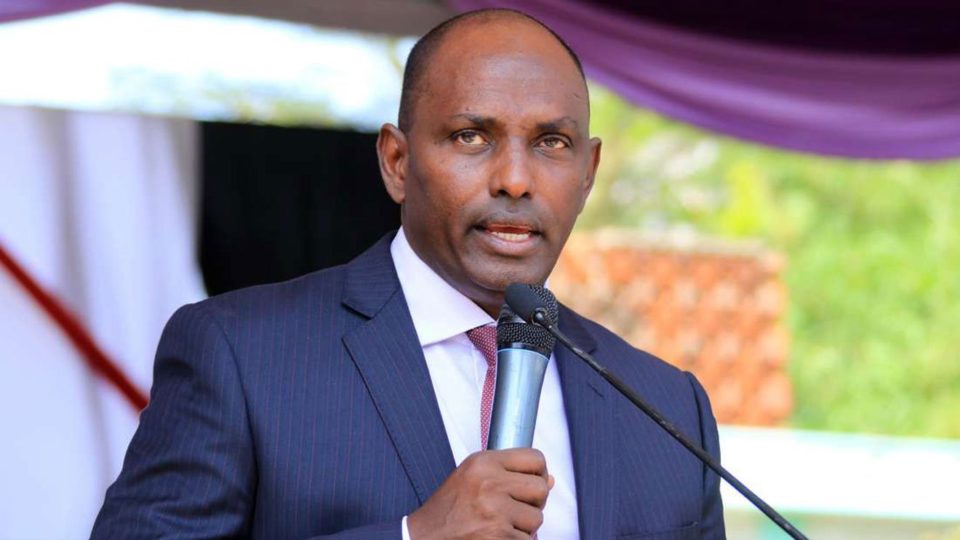Some 64 projects, which were completed long ago and some of which had been paid for by the taxpayer, have mysteriously been allocated a cumulative Sh8.1 billion in the new budget.
The Parliamentary Budget Office (PBO) has unearthed the suspicious expenditure plan contained in the new 2020/21 budget, raising questions on what exactly the government is paying for.
The revelation casts the spotlight on the Jubilee administration’s strategy of spending billions of shillings on expensive infrastructure projects while unable to stick to its own policy of completing old projects before starting new ones.
In its latest report — Unpacking the Estimates of Revenue and Expenditure for 2020/2021 — released this month, the PBO notes that the Treasury has allocated money for a second time to projects that had been finalised and their completion certificates issued.
“Analysis of the list of projects reveals that some projects have been allocated resources despite having been finalised,” the PBO report notes and goes on to list the projects, their total costs, when they were started and their expected dates of completion.
The report also reveals that projects that had been completed by February this year are still on the list waiting additional payments.
Treasury Cabinet Secretary Ukur Yatani did not pick up our calls Thursday or respond to text messages seeking clarification.
There is nothing wrong with paying money for projects after they have been completed.
However, if a project worth billions of shillings — a bypass or a superhighway — is completed, the government is expected to pay in the ratio of completed works and not 10 years after the completion certificate was handed over.
It is also not clear why projects worth billions would be paid in denominations of about Sh5 million, which means the government would take forever to finalise their payments.
One of the project that had been reported as completed is the Sh25.1 billion Nairobi Southern Bypass, whose completion date was July 2015. But the project has received an allocation of Sh100 million in the 2020/21 budget that starts in July.
The rehabilitation of the Sultan Hamud-Machakos turn-off (A109), which was completed in July 2012, has received Sh65 million, while the rehabilitation of the Njoro turn-off-Timboroa Road has been allocated Sh99 million.
Other suspicious allocations include the rehabilitation of the Kericho-Nyamasaria road (Sh5 million) and the Nyamasaria-Kisian road (Sh5 million), and the Busia one-stop border post (Sh20 million).
The one-stop border post in Lunga Lunga will receive Sh20 million; the rehabilitation of the Webuye-Kitale road Sh50 million; the rehabilitation the Majiya Chumvi-Bachuma Gate road Sh10 million, and the interchanges in Nyahururu, Njoro, and Mau Summit turn-offs will get Sh10 million.
Most of these projects were completed between 2010 and 2012 and their budgets had already been approved.
It is not clear why the Treasury would chose to pay little amounts like Sh5 million instead of clearing one big project before moving to others as has been recommended in multiple reports.
Corruption scandals have been known to take place when the country is focused on other things, such as the election.
The Covid-19 pandemic has raised fears that, while the rest of the country is battling to survive, a few individuals might be scheming ways of stealing from the taxpayer due to weak oversight from Parliament and other agencies, such as the office of the auditor-general — which has remained unfilled for months — and a cash-strapped Judiciary.
This comes as the country is facing the biggest revenue shortfall yet and is living way beyond its means.
The Jubilee administration has been pumping billions of shillings into ambitious infrastructure projects and, even when faced with the Covid-19 pandemic, would rather slash money from the health and water budgets than touch the infrastructure docket.
In the most recent supplementary budget, Treasury slashed the budgets of the Health and Water ministries by Sh19.5 billion.
Ironically, as the Water and Health budgets were squeezed, the Infrastructure ministry was added a staggering Sh44.1 billion.
This left the Health and Water ministries to rely on donor funds and emergency loans from lenders such as the World Bank and the International Monetary Fund.
A completion certificate is the last document needed before a contractor is paid its last dues for an infrastructure project.
Once the project is finished and handed over to the government, the contractor is paid its final dues, if any, and they part ways.
Thereafter, the project attracts maintenance costs as a recurrent budget but not as additional construction costs.
The PBO is a publicly funded office that provides professional budget, finance and economic advice to committees of Parliament to enable them to make informed decisions on the national budget before it.
In its latest report, it has raised various concerns on the new budget, which it says is far from reality. “The revenue targets set by the National Treasury in the budget estimates continue to be unrealistic,” it says.
It argues that Treasury should learn from previous revenue performance to make realistic projections, especially at this time when the country is faced with dire cash-flow constraints.
For instance, the government sought to raise Sh1.88 trillion in ordinary revenue this financial year. When officials realised that this was too ambitious, the target was reduced to Sh1.64 trillion in the second supplementary budget.
There's no story that cannot be told. We cover the stories that others don't want to be told, we bring you all the news you need. If you have tips, exposes or any story you need to be told bluntly and all queries write to us [email protected] also find us on Telegram

